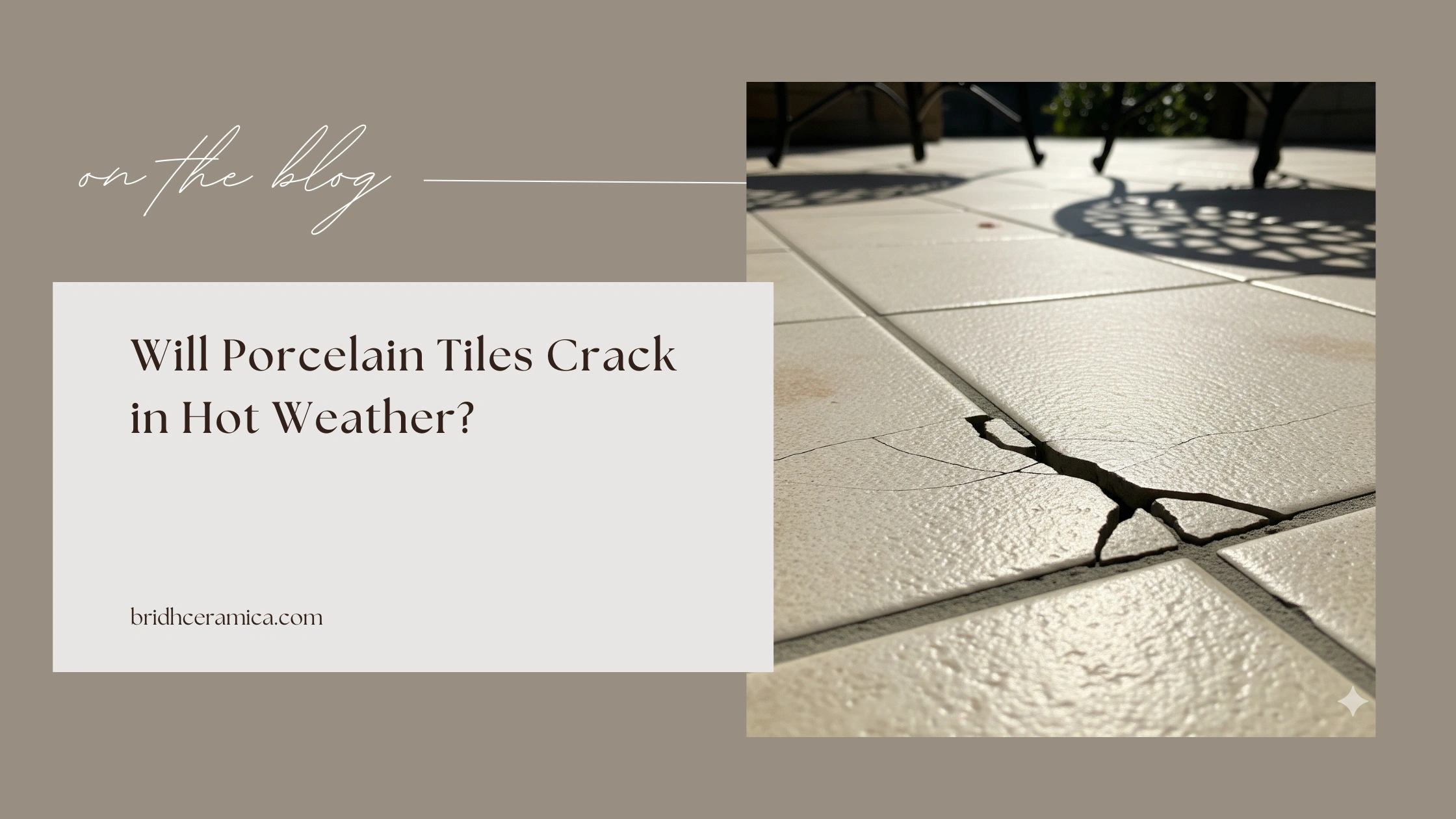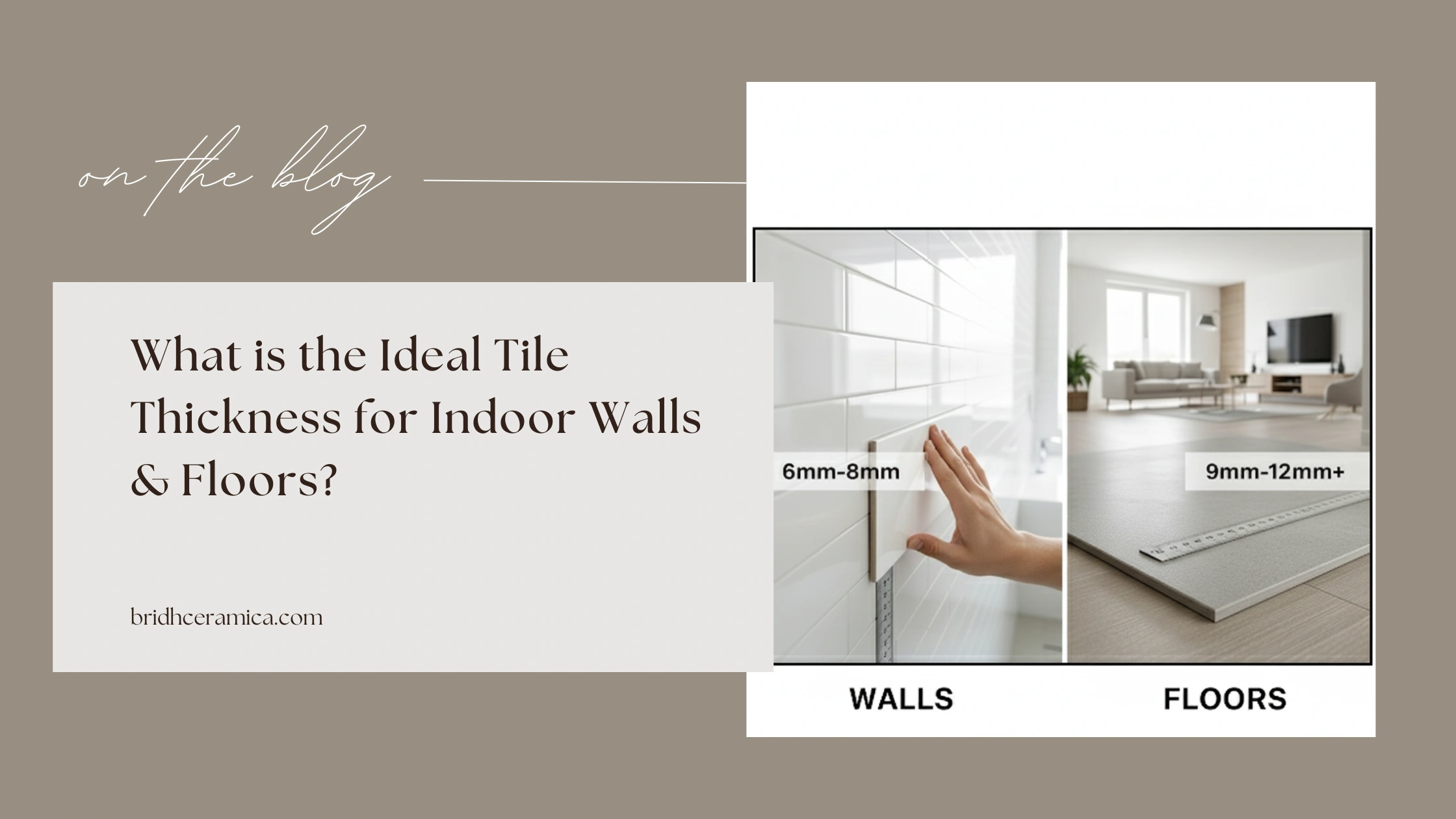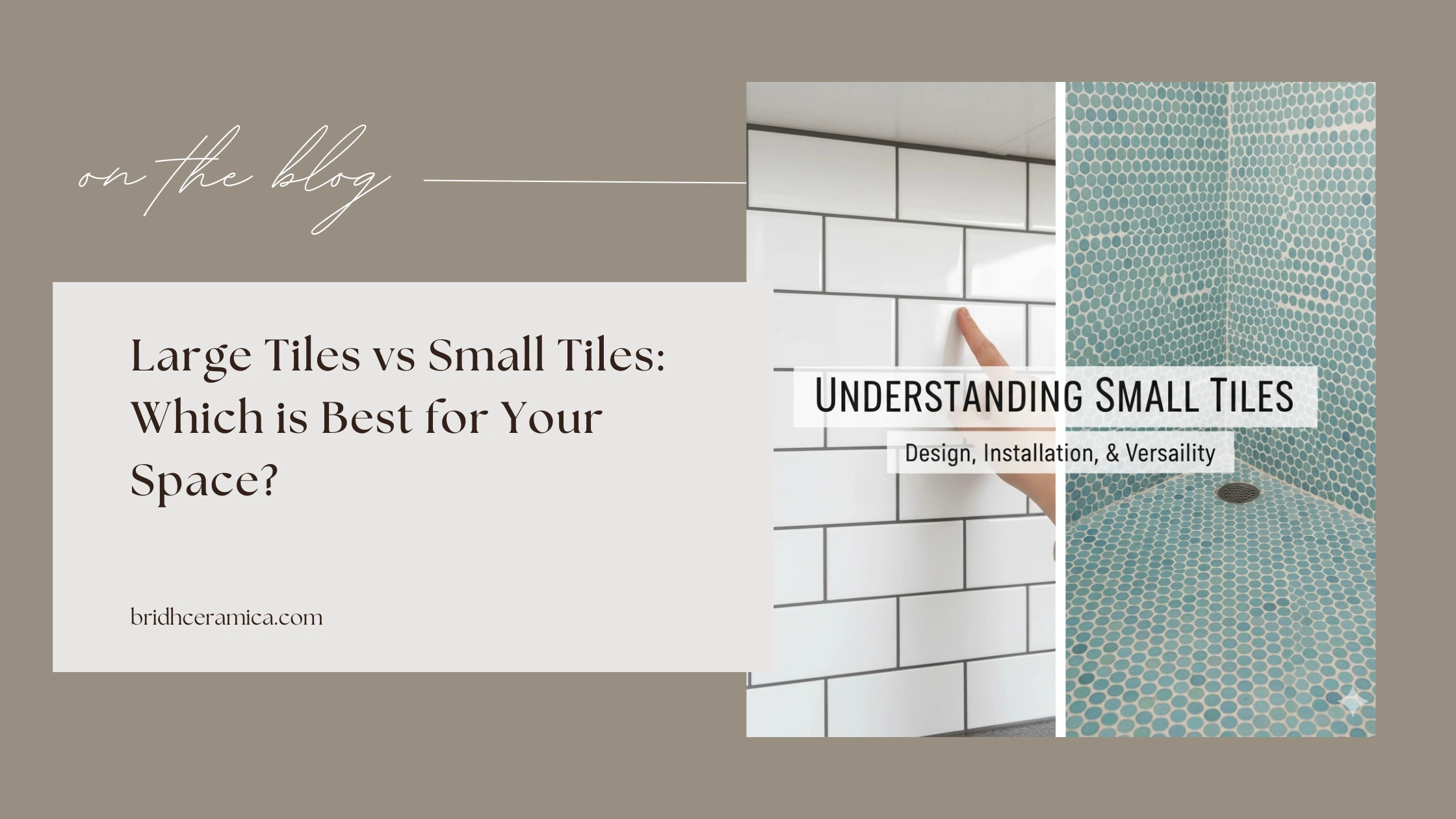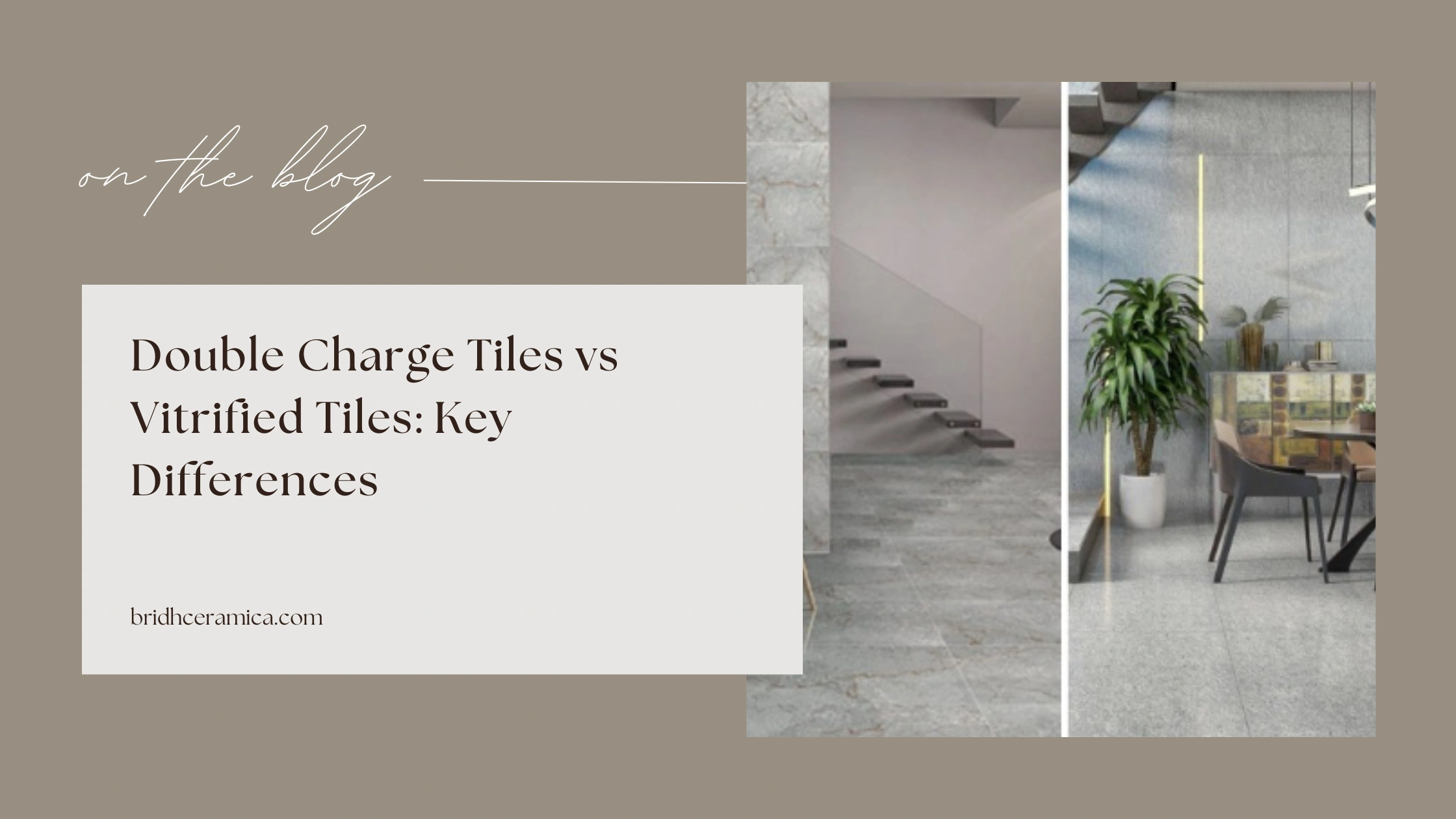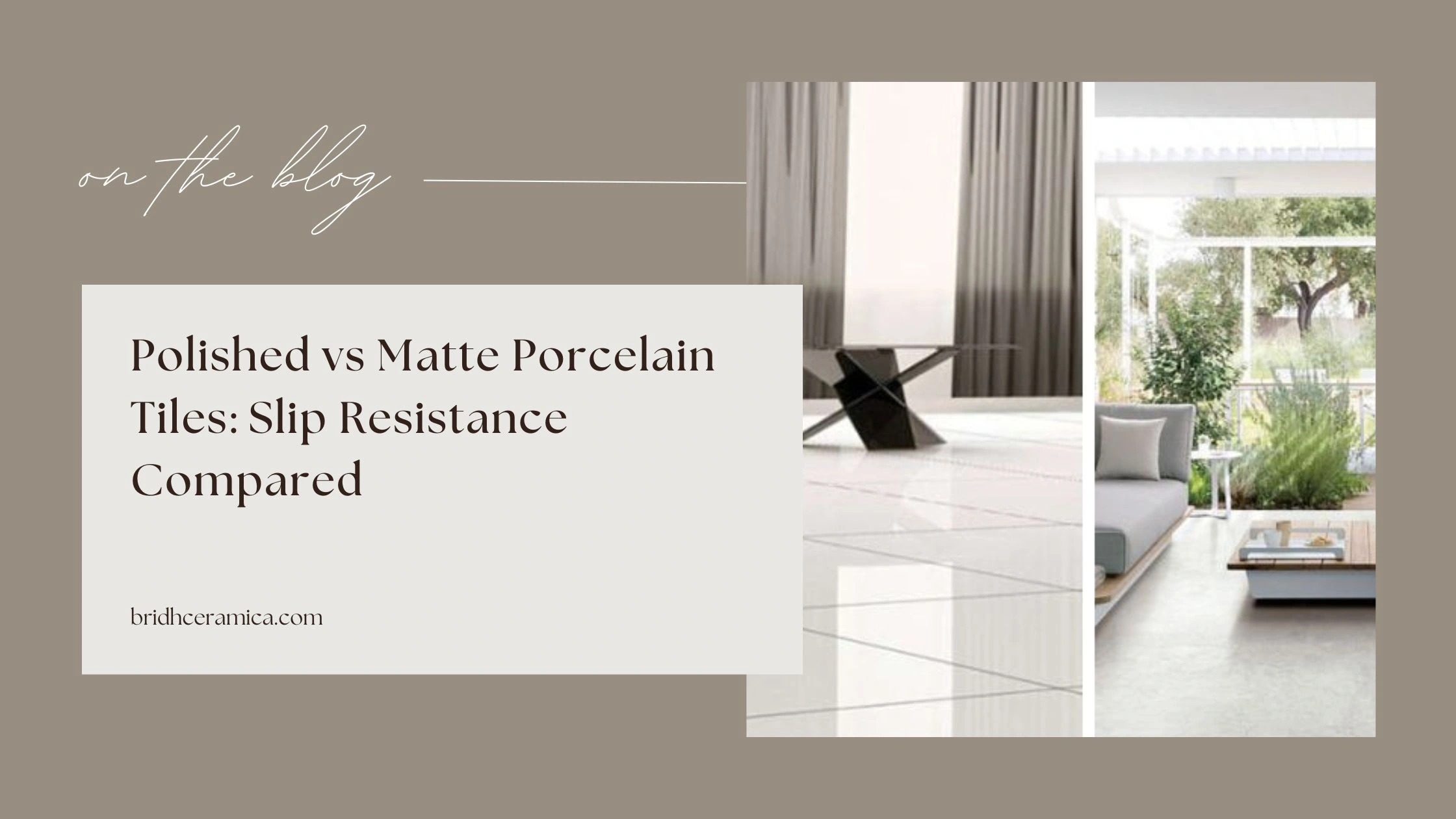Will Porcelain Tiles Crack in Hot Weather?
Sep 07, 2025Connect With Our Team
The flooring in your home is one of its most important features. It must be durable, attractive, and safe for you and your family. While indoor plants can beautifully enhance your space and improve air quality, they also bring hidden risks if not properly managed. Without the right precautions, these lovely green additions can quietly cause flooring damage through excess water, soil spills, or moisture buildup.
In this comprehensive guide, we cover everything you need to know to enjoy the beauty and health benefits of indoor plants, without the worry of ruining your floors and ensuring proper floor protection!
What Are the Benefits Of Indoor Plants?
Plants have many benefits. They can help with the air quality in your home and provide a means for you to meditate or just unwind after a long day at work. However, not all plants are designed well enough for indoor use, as they may damage type of flooring surfaces. There are plenty of choices when it comes to choosing plants that are not only safe for indoor use but could even have a positive effect on your home's air quality.
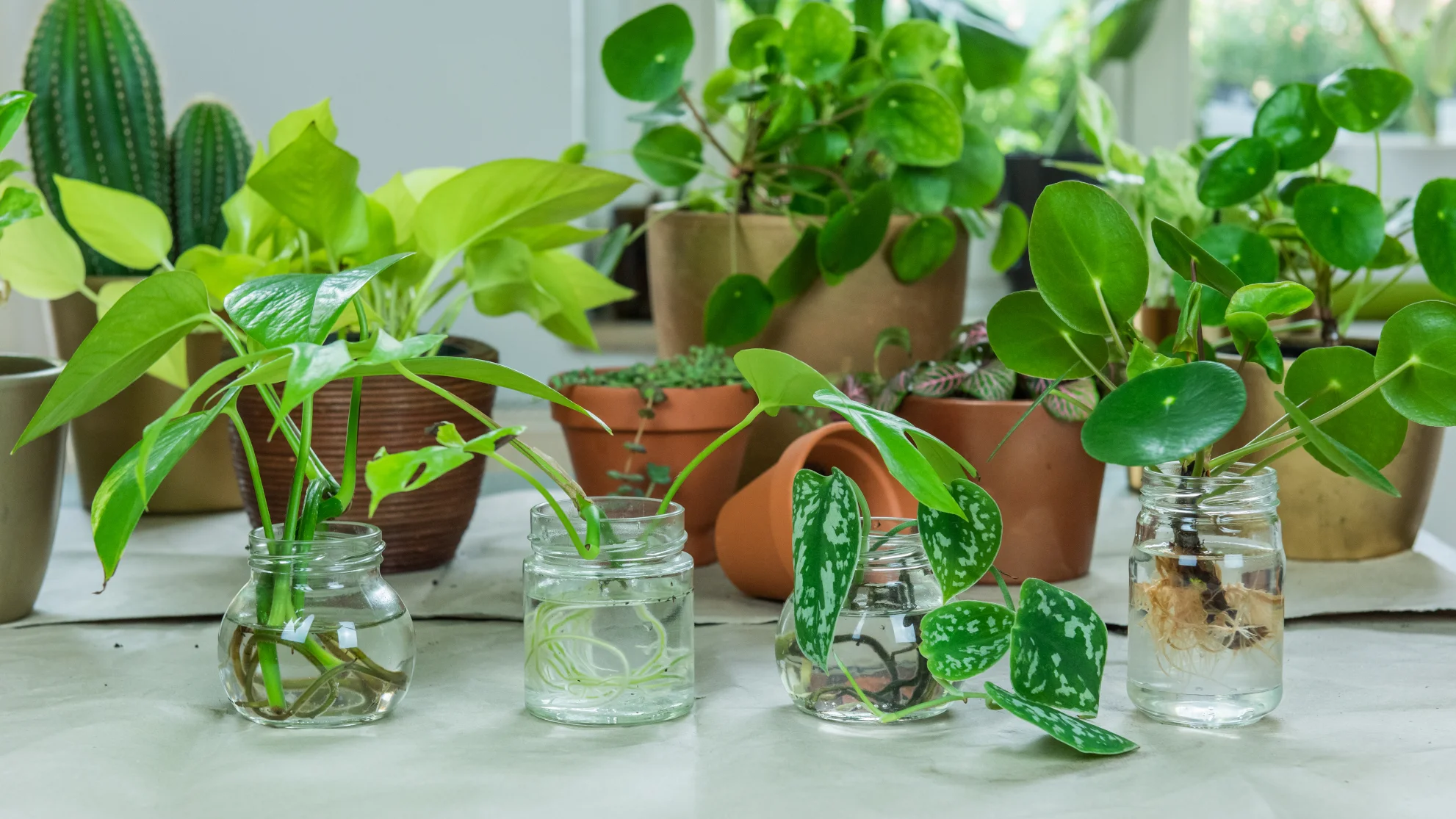
The most popular, best floor-safe indoor plants:
1. Peace Lily
2. Snake Plant
3. Kokedama Moss Balls
Peace lilies release oxygen at night and can help improve your sleep. Plants need light to thrive, which means you'll want to place your plant near a window for best results. While some plants may seem delicate, they can be perfect as indoor plants so long as you take the right steps to care for them and keep them watered. Kokedama is one of these types of plants that does well indoors because it requires little water or sunlight.
Risks Of Placing Plants On Flooring
Plants can be great for the air quality of your home and provide a means for you to relax, but they may not always be safe on floors. Plants release water as well as soil, which can cause floor water damage from excess moisture or dirt that isn't properly cared for.
The most important thing when it comes to caring for plants is making sure that they are getting the right amount of water. Too much or too little may both cause harm to your flooring.
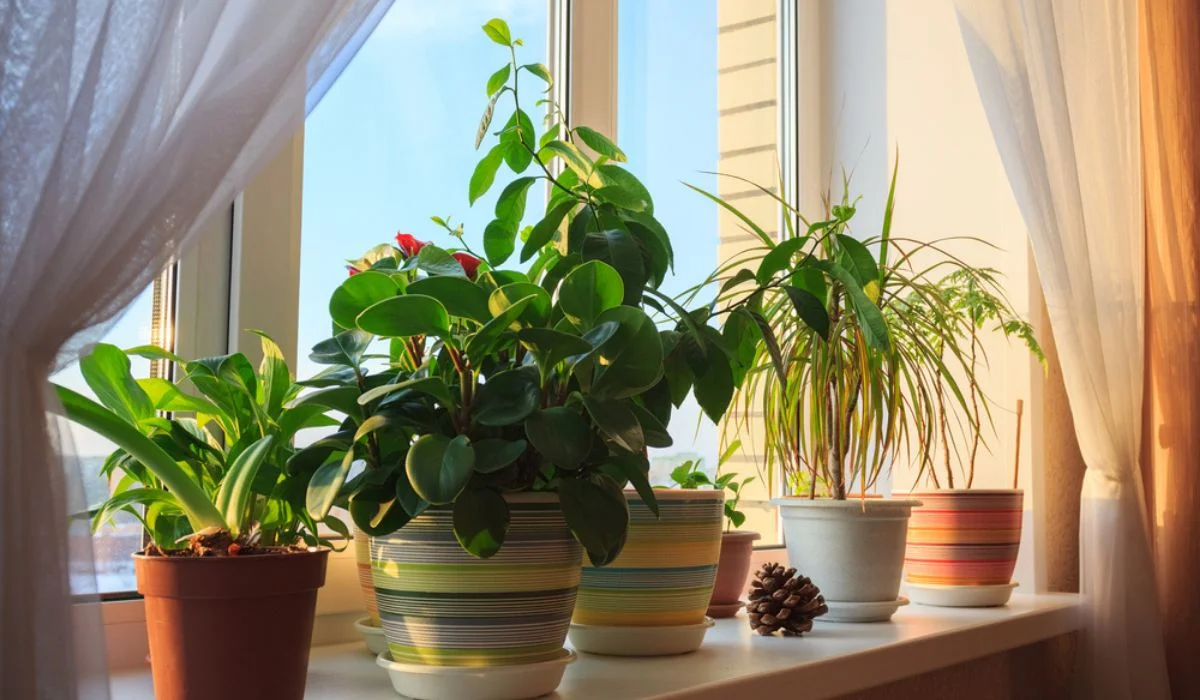
The best way to ensure floor protection from plants is with a sheet of plastic, which you can put down before placing any plant on top. This will keep the dirt and excess moisture from ruining your floors by allowing them enough time to dry off before they make contact with the floor.
The next step is adding a layer of mulch, which will keep moisture away from your floors and prevent any dirt or soil from coming up. This can be done by putting it down on top of whatever you have under your plants so that it doesn't come in direct contact with the floor.
How Plants Affect Different Flooring Types
Indoor plants make any room fresher and more alive, yet they may cause different effects on tile flooring or other surfaces since the materials do matter. Knowing how your floors respond to moisture, dirt, and plant care is the most important factor towards protecting your investment, more so when you have tile flooring on the floor.
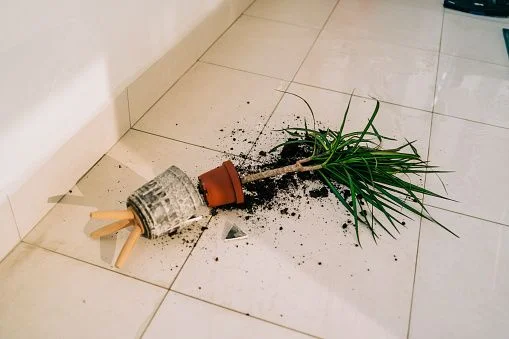
Tile Flooring: Durable but Not Completely Risk-Free
Ceramic, porcelain, and stone tiles are among the hardest type of flooring and can be said to be plant-friendly in general. They repel both moisture and stains as well as scratches more than wood or carpet. But tiles, nevertheless, need some attention when planting directly on them.
Common Risks to Tile Flooring:
-
Grout staining: The porous grout lines between tiles are vulnerable to moisture, soil, and mineral deposits from plant watering. Over time, this can lead to discoloration, mold, or mildew growth.
-
Slippery floors: A water spill or overflow in plant pots can make tile flooring very slippery and highly dangerous to fall in such places as kitchens or bathrooms. This increases the need for anti slip flooring in such high-risk areas.
-
Mineral buildup: The excessive watering of the plants can result in white, chalky-like stains on the tiles unless they are wiped as soon as possible.
-
Breakage Risks by Large Heavy Pots: Large and heavy plant pots could break or damage some kinds of tiles by dropping them or dragging them, and causing broken floor tiles, chips, or cracks, particularly on brittle ceramic tiles.
Protection Tips for Tile Floors:
-
Use plant saucers or trays to catch excess water and prevent grout staining.
-
Place plants on raised stands or mats to minimize direct moisture contact.
-
Clean up any water spills immediately to avoid slippery conditions and ensure anti-slip flooring safety.
-
Seal your grout lines periodically to prevent moisture absorption and staining.
-
Avoid dragging heavy pots across the floor; lift or use rollers to move them safely to prevent repair tile cracks or surface stress.
Best Floor-Safe Indoor Plants
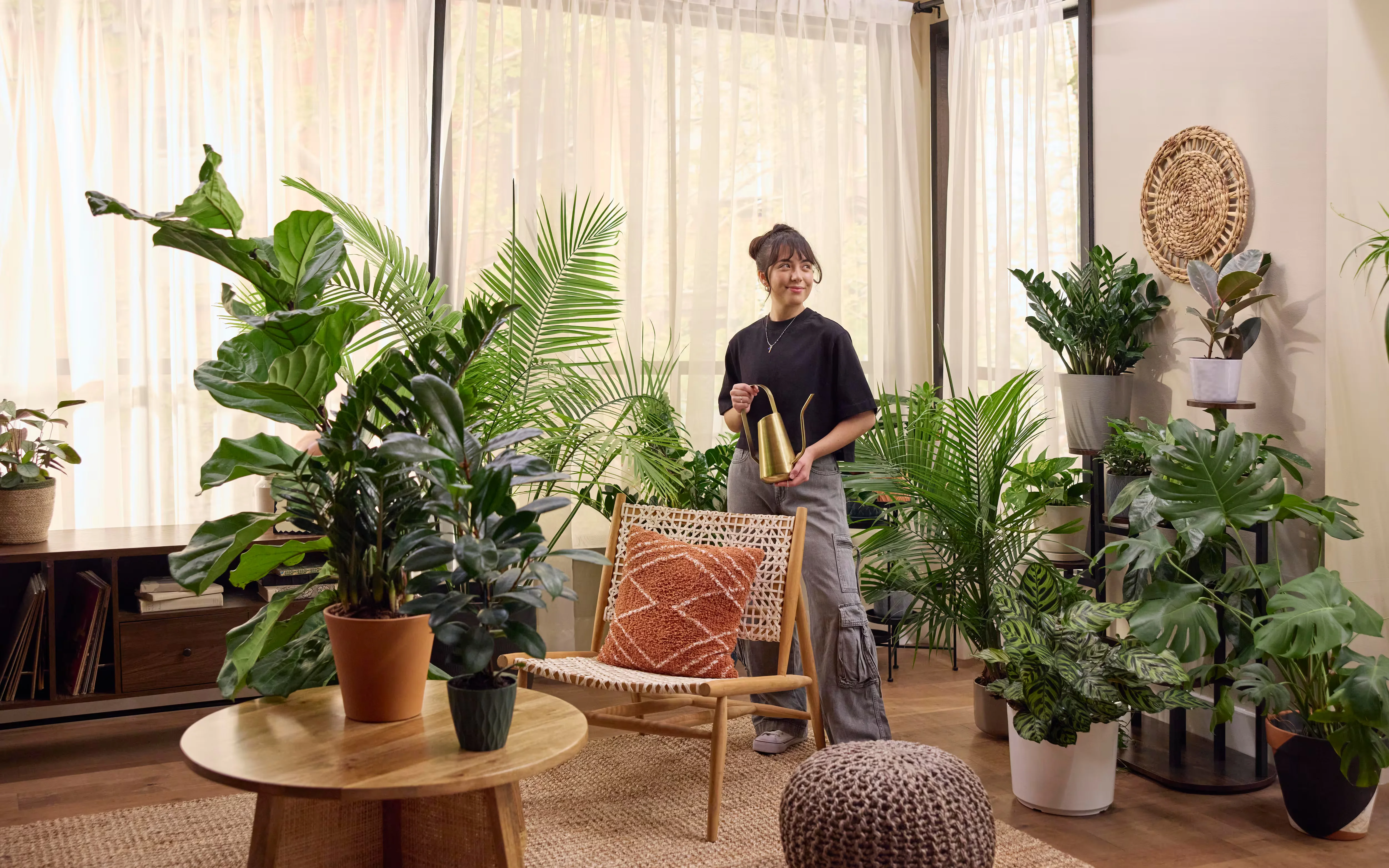
There are some types of plants that will work well in your home as long as you take care of them properly and provide the right amount of space for them to grow. Peace lilies, Kokedama moss balls, or snake plant are all good choices.
It is important to consider which type of flooring surface you have before making a decision to place plants on your floor. Some types of plants may not be safe for certain surfaces so it's important that you do your research.
The peace lily is one of the most popular choices when it comes to indoor plants because they provide oxygen at night and can help improve sleep. They thrive indoors as long as you give them enough light.
Kokedama is another popular plant that does well indoors because it doesn't require a lot of sunlight or water. If you have hardwood floors, then these plants could be safe for use so long as you take care to protect the floor.
Snakes are also good options if your priority is keeping with an indoor garden aesthetic and they are safe for use on hardwood floors.
Regardless of the type of plant you choose, it's important to make sure that they are getting enough water and light in order to thrive. You should also invest in a plastic cover so that your floor is protected from any dirt or soil coming up.
Signs of Flooring Damage From Plants
Though having some plants inside your house can help increase its beauty, it can also be detrimental to your floors without being noticed, as long as you do not take proper care of them. With these early warning signs, you should be able to keep your floors still attractive without needing to repair tile cracks or replace broken floor tiles, which can be costly.
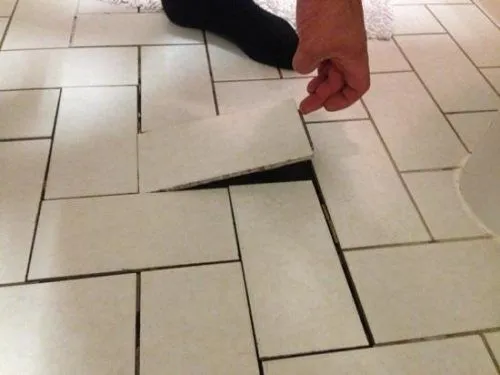
1. Water Stains or Discoloration
Surface watermarks or uneven discoloration caused by overwatering or leaky pots are unsightly on tiles with light grout or stone tiles. When untreated, these stains may turn permanent.
2. Mold or Mildew Growth
The musty smell is a warning sign or be mindful of black, green, or gray spots in the vicinity of your plant pots, as these are molds or mildew getting ready to take shape more often on tile grout lines, corners, or underneath mats. This is as a result of moisture that is trapped and does not dry up fast enough.
3. Efflorescence (White Residue)
The mineral deposits of hard water used to water plants may cause chalky white film (efflorescence) to be left on tile floors. This is typical of natural stone tiles with self-porous or unsealed grout.
4. Loose or Cracked Tiles
Heavy plant pots or too much movement can cause loose, cracked, or chipped tiles, particularly where tiles have not been installed correctly or where heavy items are placed on them and out of balance.
5. Slippery Surfaces
When you feel that your floor is always too smooth or too slippery to step on, it can be an accumulation of water spills or condensation under the plant bases, which you may not notice, but remain a safety menace to your family.
6. Grout Deterioration
Tiles with grout that are soft, crumbly, or stained by water are signs of water damage occurring. Regular seepage of plant water into these areas can disintegrate the integrity of the grout with time.
How to Protect Flooring from Plant Damage
Since plants will be placed on top of the floor, there is a chance that some dirt and water may spill onto it. If you are going to use carpet or hardwood floors, then this may not be an issue because they can maintain their structural integrity even if wet. But for other types of floors such as tile flooring or carpets (if you don't have a high-quality rug), it may be problematic.
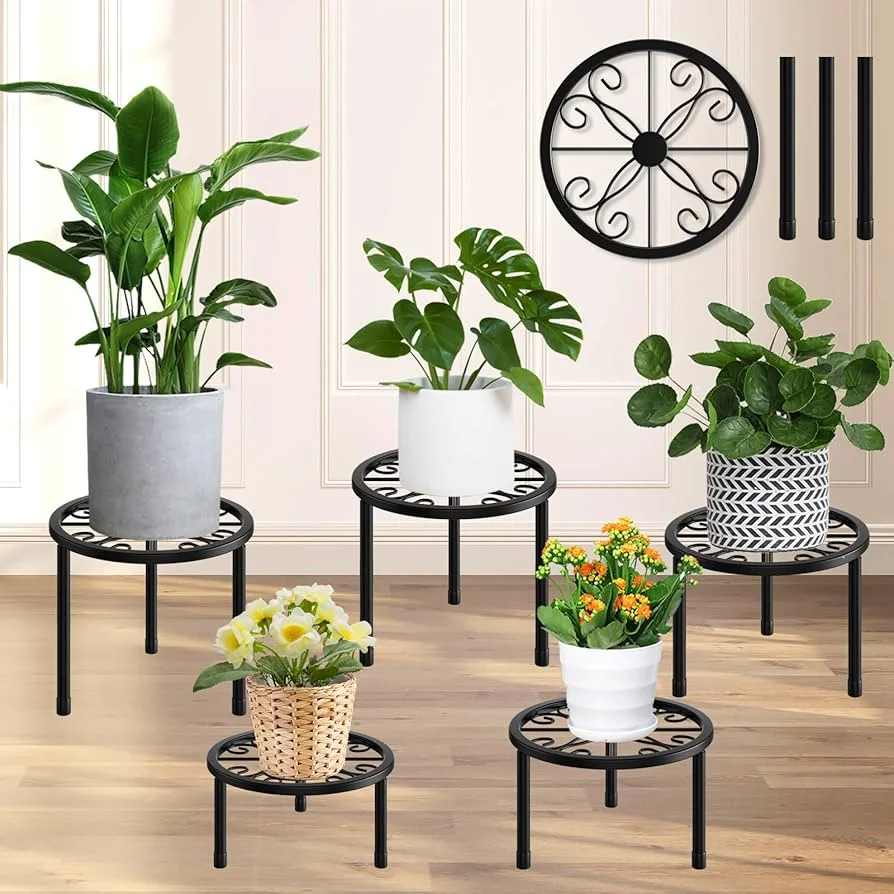
There are several ways to prevent this issue from happening:
-
Use plant pots that can contain dirt and water, so spills do not spread onto the floor below them and cause floor water damage.
-
Another option might be using coasters to provide extra floor protection or placing plants on a table.
-
A third option is to attach the plants with adhesive so they can be easily removed if you ever need to move them or change their location, without damaging your flooring in the process.
-
The fourth and final way is by using plant stands that are designed for this purpose, like those made of either plastic or metal that have a hole in the bottom to allow dirt and water to pass through, perfect to prevent flooring damage.
Tile & Floor Safety: Quick Tips for Plant Lovers
-
Vacuum the floor often. This will help pull up dirt and dust that might not be visible to you but is still there!
-
It's best if you have a vacuum with different attachments so that it can get into corners more easily.
-
Have your kids clean off their shoes by taking out any pebbles or dirt before they come inside.
-
Sweep the floor daily with a broom and dustpan to remove any large pieces of dirt, food, or anything else that might cause flooring damage.
-
Don't forget about those corners: find them all around your room by using an extendable stick vacuum so you can reach them!
-
If you have a lot of furniture, try to vacuum around it first before moving the furniture.
-
Be sure to go over any cracks in your flooring or corners with a cloth and diluted bleach solution to prevent future floor water damage.
-
Let dry for about 20 minutes before using your regular cleaner on those spots again (this will help clean the dirt that gets left behind when you clean!)
-
Scrub the floor with a broom and diluted bleach solution after vacuuming to loosen any stuck-on areas. You can do this every day if needed!
Conclusion
In conclusion, while indoor plants bring natural beauty, freshness, and health benefits to your home, they can unknowingly cause damage to your flooring if not handled carefully. By using proper protective measures like trays, mats, raised stands, and sealing grout lines, you can enjoy the charm of greenery without worrying about moisture, stains, or cracks. With mindful plant care and regular floor maintenance, you can keep both your indoor garden and floors in perfect condition for years to come.
Whatsapp Chatx
Hi! Click one of our representatives below to chat on WhatsApp or send us email to dhaval@bridhceramica.com

|
************** +91 97023 82809 |
 TILES VIEW
TILES VIEW
